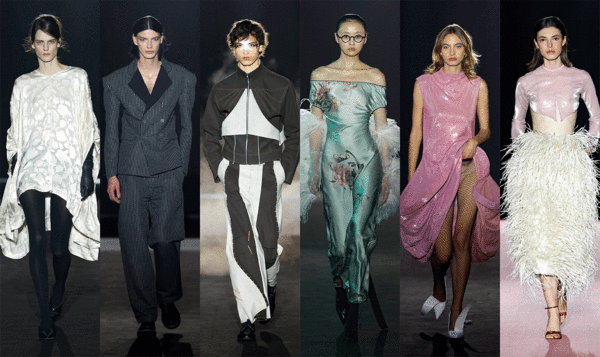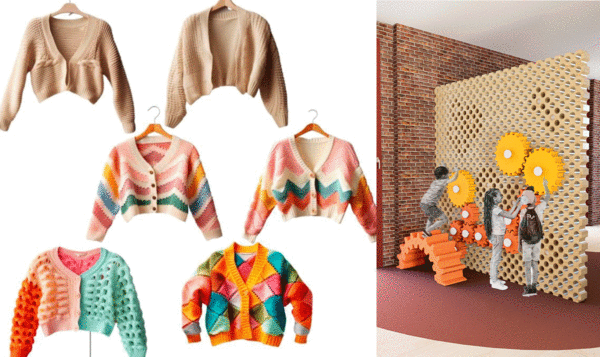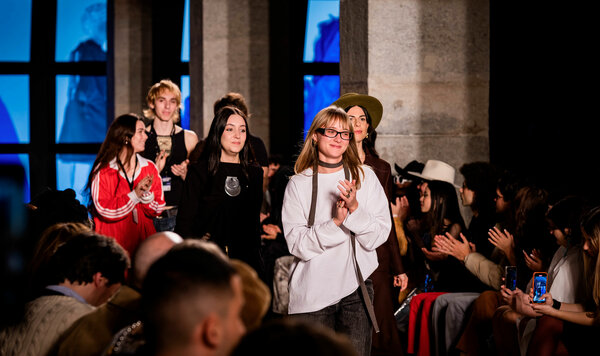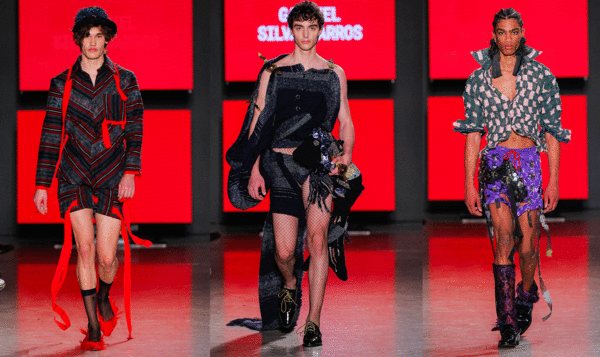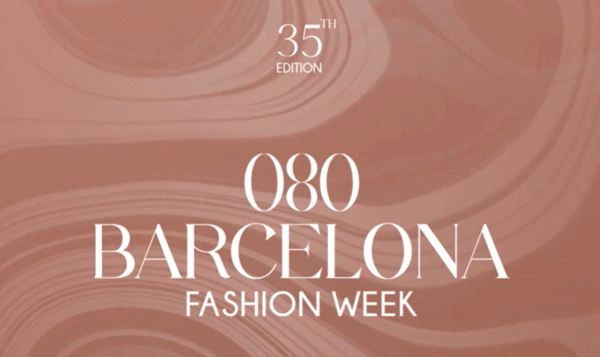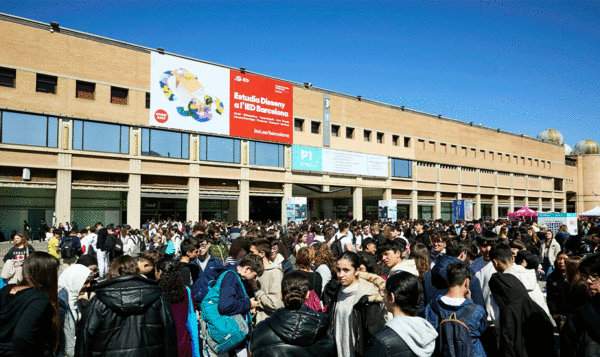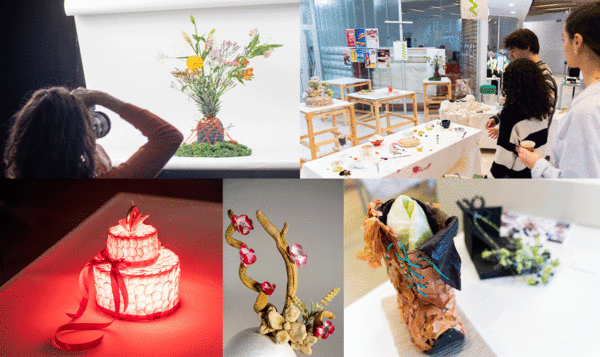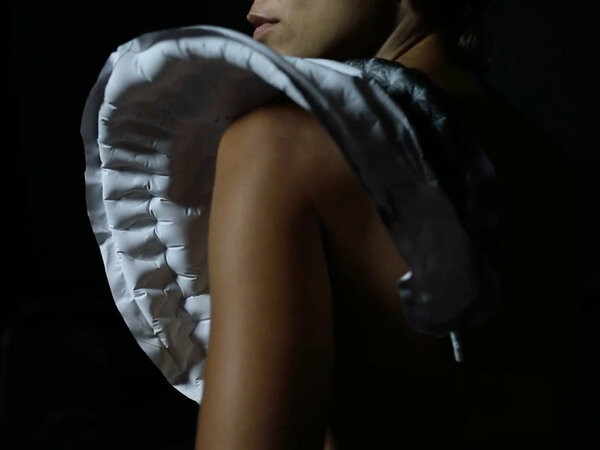Projects that have imagined what the fashion of the future will be like thanks to digital manufacturing technologies and new materials, from a design perspective

Four IED Barcelona projects at VIBEZ
Date
31 October 2024
Four projects from the Master in Design for Sustainable Fashion Technology developed within the framework of the ATTRACT Future Technologies for Sustainable Fashion programme* have been selected to participate at VIBEZ on 8 and 9 November (Districte Cultural L’H, Carretera del mig 53, L’Hospitalet de Llobregat).
The second edition of the young digital culture festival will showcase projects that have imagined what the fashion of the future will be like thanks to digital manufacturing technologies and new materials, from a design perspective. The projects have been curated by BCN Fashion HUB.
The selected projects are:
SOILSKIN is a garment inspired by the plight of post-earth roamers forced to endure aridity. The design features a 3D printed corset and gorget with a gradient effect, representing desiccation cracks that appear due to global warming. As well as reflecting UV rays, the armour represents the aestheticisation of climate change in dystopian narratives.
STUDENTS: Sofia Mazzucchelli Pompeu de Toledo, Xaneva Elorriaga George, and Barbara Rakovská.
LILA is a maternity garment created using 3D printing software and AHEAD technology, designed to help in cases of extreme heat due to future climate change. It includes an AHEAD sensor, which measures the mother’s nutrients and the baby’s vital signs and heart rate. The suit’s cooling thermofibres allow the expectant mother to stay active.
STUDENTS: Laura Cholewa, Leah Disney, and Nasrin Mehralian.
SHORTEST PATH, the project focuses on agricultural workers, who face risks such as dehydration, heat stress, inadequate clothing, and heavy workloads in hot environments. To address these issues, students developed a garment that cools the body while they work, created using 3D printing and featuring a nanotechnology ventilation system to help agricultural workers maintain a comfortable body temperature.
STUDENTS: Joana Galli, Lola Loebel-Roson, and Sita Zacherl.
ASPIRA is a modular device, made of algae and completely self-sufficient, which can be attached to any garment or accessory and contributes to reducing environmental pollution. It uses dirty water or contaminated body fluids, such as sweat, to cultivate these organisms and make them grow. In highly polluted areas, it is possible to use several devices at once.
STUDENTS: Eugenia Sananes, Jaiwen Gong, and Sarah Rivera.
More information about the projects is available here.
On Saturday 9 November, also within the framework of the festival, there will be a Pitching Stage where the students can explain the creation process of their projects.
*This project received funding from the European Union's Horizon 2020 research and innovation programme under grant agreement No. 101004462.

